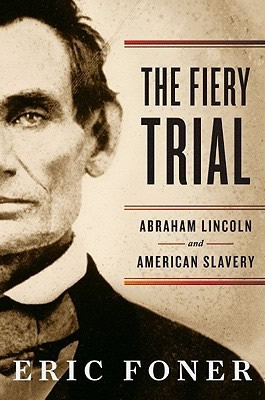 The Fiery Trial: Abraham Lincoln and American Slavery
The Fiery Trial: Abraham Lincoln and American Slavery
W.W. Norton & Company, 2010
Agent: Sandra Dijkstra
Selected as a Notable Book of the Year by the New York Times Book Review, this landmark work gives us a definitive account of Lincoln's lifelong engagement with the nation's critical issue: American slavery. A master historian, Eric Foner draws Lincoln and the broader history of the period into perfect balance. We see Lincoln, a pragmatic politician grounded in principle, deftly navigating the dynamic politics of antislavery, secession, and civil war. Lincoln's greatness emerges from his capacity for moral and political growth.
Accolades:
Pulitzer Prize
The Lincoln Prize
Bancroft Prize
Selected as on of New York Times top 100 books of 2010
Reviews:
“More cogently than any previous historian, Foner examines the political events that shaped Lincoln and ultimately brought out his true greatness.”
—New York Times Book Review
"Eric Foner, perhaps the preeminent historian of the Civil War era, has produced a masterwork that examines Lincoln’s passage to Gettysburg and beyond, and his movement as a historical figure to the status of symbol if not secular saint…. Some of this territory — what Lincoln thought, when he thought it, how contradictory it was, how it fit into Lincoln’s world view, and how that world view changed — has been covered before, but never so comprehensively as Foner does, never with the historical sweep that Foner sets out, never with the historiographical finality that Foner will very likely be judged to have achieved…."
—Boston Globe
“[Foner], our most distinguished scholar assaying the meaning of American freedom, ventures boldly into the tangles study of Lincoln’s relationship with slavery and race to produce an original and compelling argument. … Verdict: In the vast library on Lincoln, Foner’s book stands out as the most sensitive and sensible reading of Lincoln’s lifetime involvement with slavery and the most insightful assessment of Lincoln’s—and indeed Anerica’s—imperative to move toward freedom lest it be lost. An essential work for all Americans.”
—Library Journal (starred)
“In tackling Lincoln’s extremely tangled relationshid with slavery and race, the widely respected and influential historian of America aims to present a clear-eyed portrayal of how the 16th president would come—at times reluctantly—to win the title of Great Emancipator.”
—Kirkus Reviews
“Foner situates this record within a lucid, nuanced discussion of the era’s turbulent racial politics; in his account Lincoln is a canny operator, cautiously navigating the racist attitudes of Northern whites, prodded—and sometimes willing to be prodded—by abolitionists and racial egalitarians pressing faster reforms. But as Foner tells it, Lincoln also embodies a society-wide transformation in consciousness, as the war’s upheavals and the dynamic new roles played by African-Americans made previously unthinkable claims of freedom and equality seem inevitable. Lincoln is no paragon in Foner’s searching portrait, but something more essential—a politician with an open mind and a restless conscience.”
—Publishers Weekly